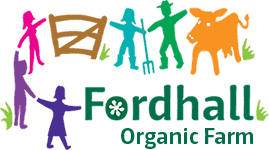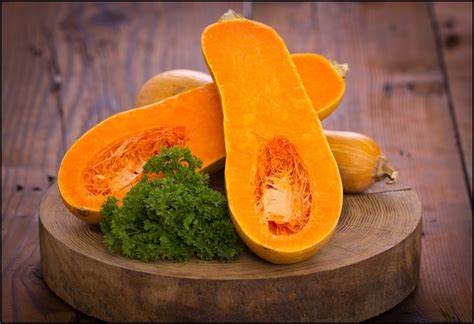Nothing shouts AUTUMN quite like a squash and we seem to be heading into the season of plenty. I love this time of year and in the UK we generally have an abundance of locally produced fruit and vegetables to keep us going for a while. However, I think I’m well and truly over courgettes now as my 2 plants have produced a real glut this year and I’ve had to be quite inventive with using them up. Anyway, I guess courgettes are for another blog because over the next few weeks in Arthurs Farm Kitchen and the Farm Shop we will be celebrating the beautiful butternut squash.
Butternut squash belongs to the cucurbitaceae plant family of gourds, along with the cucumbers, melons and all different type of squash & gourds. The butternut squash is a pear-shaped squash with a beige coloured skin and orange flesh when ripe. It is a versatile vegetable and can be used in anything from a healthy soup to a risotto, you can even sneak pureed butternut squash into homemade Brownies as a way of getting extra vegetables into the kids without them knowing 😊.
Butternut squash contain a nutrient called Carotenoids. These help to give them their bright orange colour. Carotenoids are fat soluble so are absorbed best by the body when eaten with a healthy fat such as nuts, seeds, olive oil or avocado. By chopping and lightly cooking or roasting butternut squash you will help to release the carotenoid and increase the body’s ability to absorb more.
But what exactly are carotenoids? They are a natural chemical compound found in plants. Carotenoids are an antioxidant which means that they can help support the body against oxidative stress – which can happen when the amount of free radicals (chemical compounds missing an atom that can cause damage to the body) outweigh the amount of oxidants you have in the body causing an imbalance. Oxidative stress in the body can lead to cell damage which in turn may promote premature aging and chronic disease.
There are many different types of carotenoid, with the main ones being; beta carotene, alpha carotene and beta-cryptoxanthin which all convert naturally into Vitamin A in the body to help maintain healthy vision along with skin and nervous system support.
Butternut squash is also a great source of dietary fibre, so essential for fuelling our gut bacteria, promoting a healthy digestive system and helping to naturally lower cholesterol levels.
Did you know that the skin of the butternut squash is also edible (although it might not taste great), and the seeds are too. I like the seeds roasted in a little oil, paprika and salt & pepper, yum yum!
Nothing goes to waste with the butternut squash.
Kate Bevan Wood Dip CNM, mBANT, CNHC
Registered Nutritional Therapist and Resident Nutritional Therapist at Fordhall Farm.

